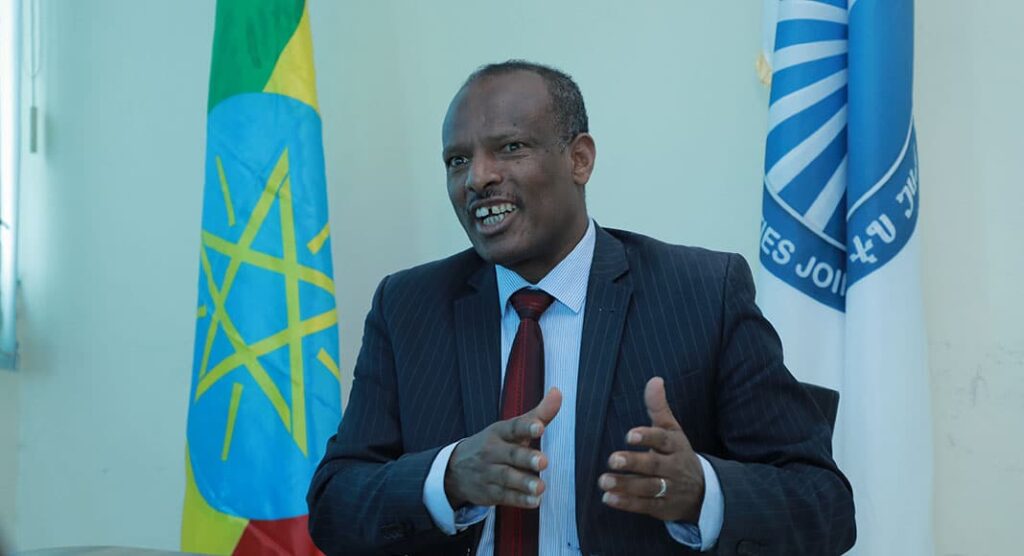[
Ethiopia: Desta Dinka and the State of Politics
Desta Dinka, the current chairman of the Joint Council of Political Parties, is a prominent figure in Ethiopian politics. With a diverse background that includes working as a zonal prosecutor, lawyer, and banker, Desta fully immersed himself in the country’s political landscape in 2014. He currently holds key positions in the Ethiopian Federal Democratic Unity (Medrek) and the Oromo Federalist Party (OFC).
Desta’s journey in politics dates back to 1991, coinciding with the rise of the Ethiopian People’s Revolutionary Democratic Front (EPRDF). He highlights the challenges faced by political parties and their leaders, emphasizing the need for peaceful methods to enact meaningful political change. In a recent interview with Abraham Tekle of The Reporter, Desta sheds light on the state of politics in Ethiopia and offers insights into potential paths forward for the country.
Reflecting on Ethiopia’s political landscape under both the Derg and EPRDF regimes, Desta provides a historical perspective. During the Derg era, the focus was on “Ethiopianism” and socialism, with limited political rights for parties. The EPRDF’s rise to power in 1991 brought hopes of political transformation, but the party gradually tightened its grip on the political sphere, limiting genuine competition.
Following the 2018 political transition and the leadership of Prime Minister Abiy Ahmed, Ethiopia saw a surge in violence and conflicts, particularly in regions like Oromia and Amhara. Desta attributes these challenges to a lack of moral leadership within the political sphere, leading to instability and unrest.
Addressing the prevalence of armed struggle in Ethiopian politics, Desta emphasizes the need for peaceful methods to achieve political change. He acknowledges the role of opposition parties, activists, and media organizations in shaping the current political landscape, urging for a shift towards dialogue and non-violent approaches.
In evaluating the current government’s commitment to democracy, Desta criticizes the fear-driven governance and calls for bold leadership that prioritizes public interests. He highlights missed opportunities by the ruling party to enact meaningful reforms and address the root causes of Ethiopia’s challenges.
Desta emphasizes the importance of accountability and open dialogue in resolving conflicts and moving towards sustainable solutions. By prioritizing the common good and engaging in constructive conversations, he believes Ethiopia can navigate its current problems and build a more stable and inclusive political environment.
As Ethiopia navigates its complex political landscape, figures like Desta Dinka play a crucial role in advocating for peaceful methods of political change and fostering dialogue among diverse stakeholders. With a deep understanding of the country’s history and challenges, Desta offers valuable insights into the path forward for Ethiopia’s political future.
